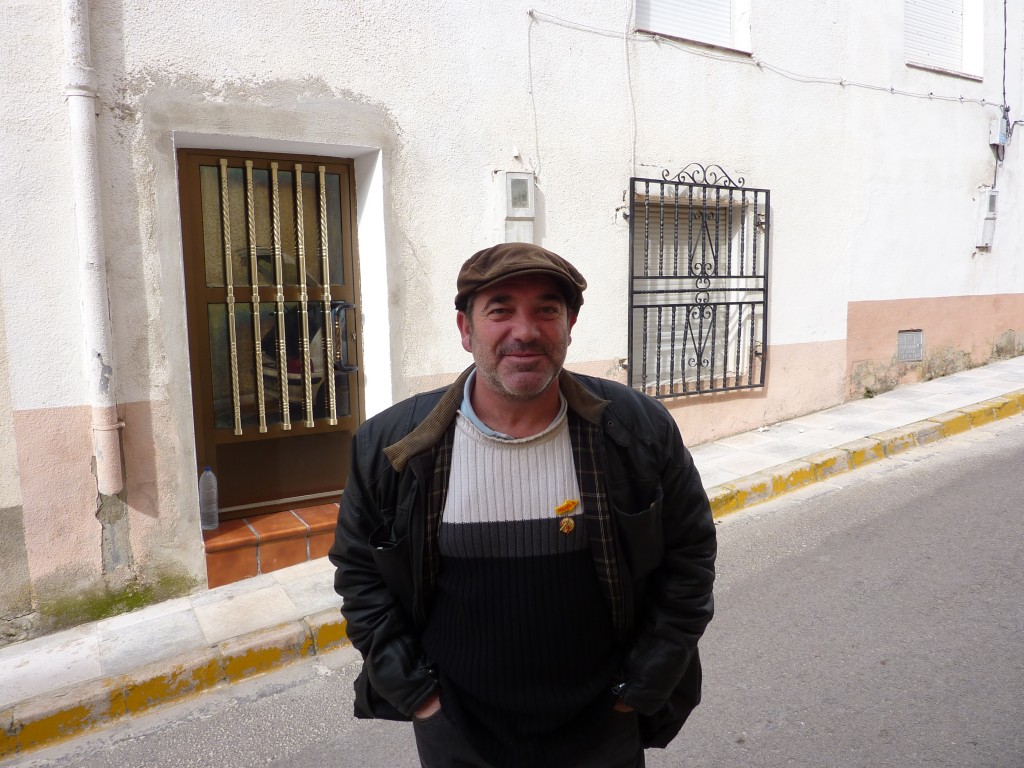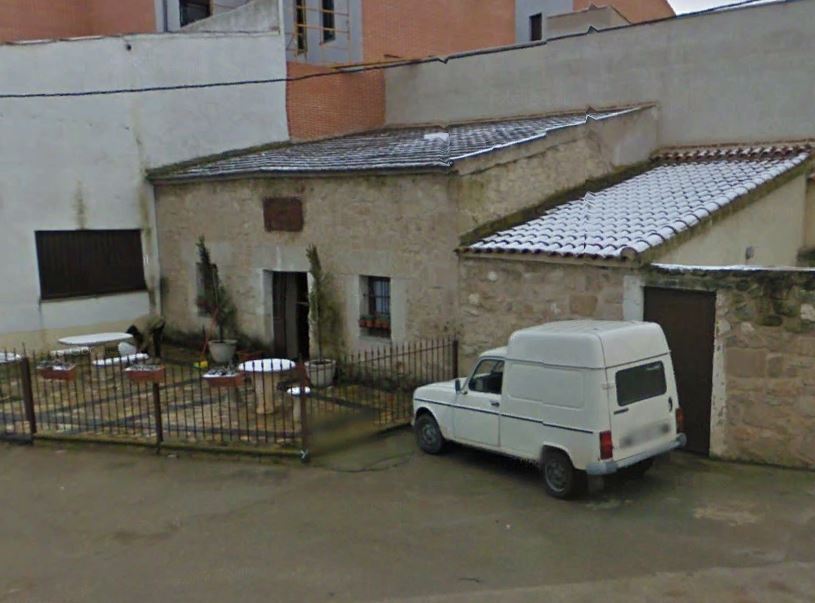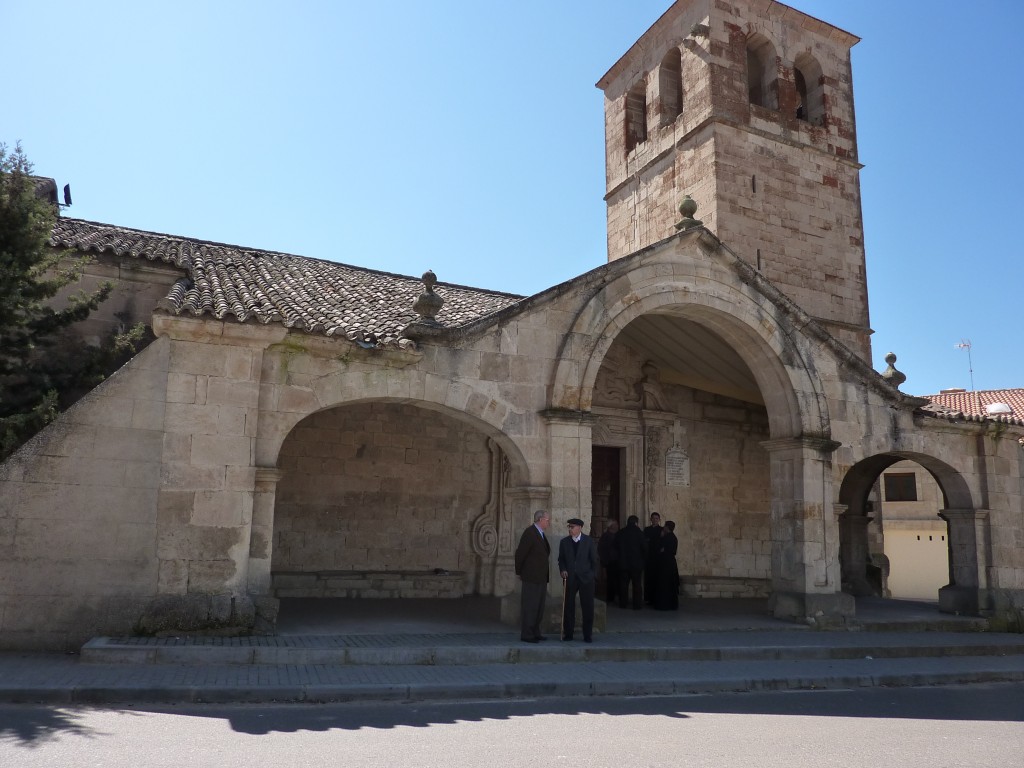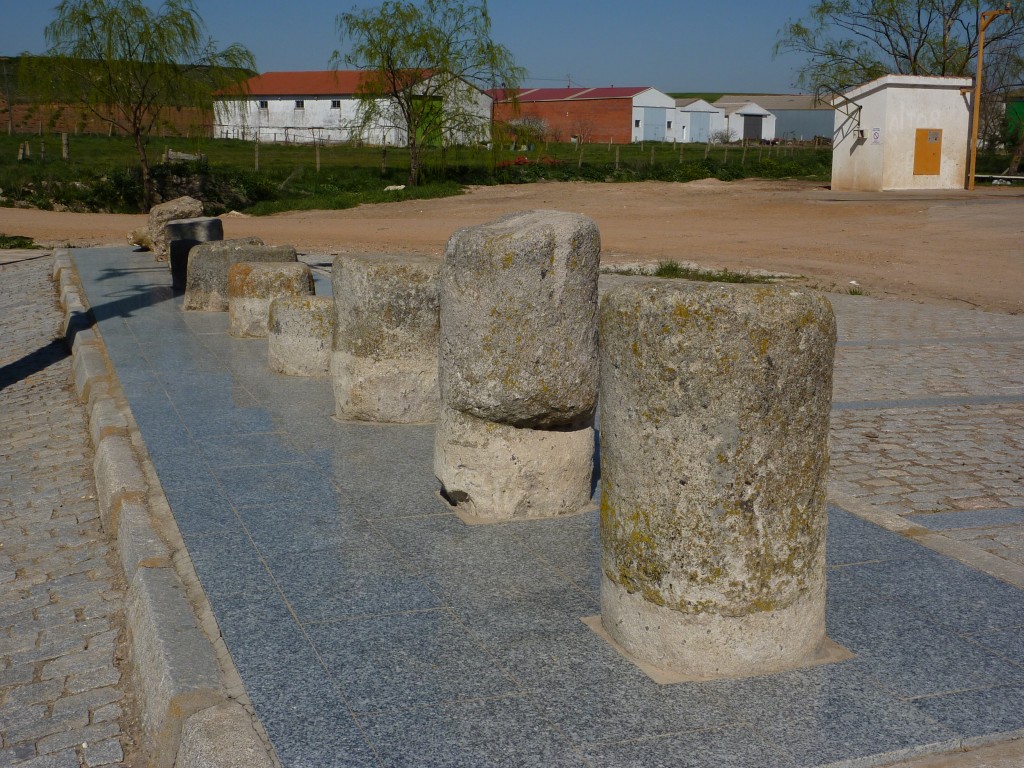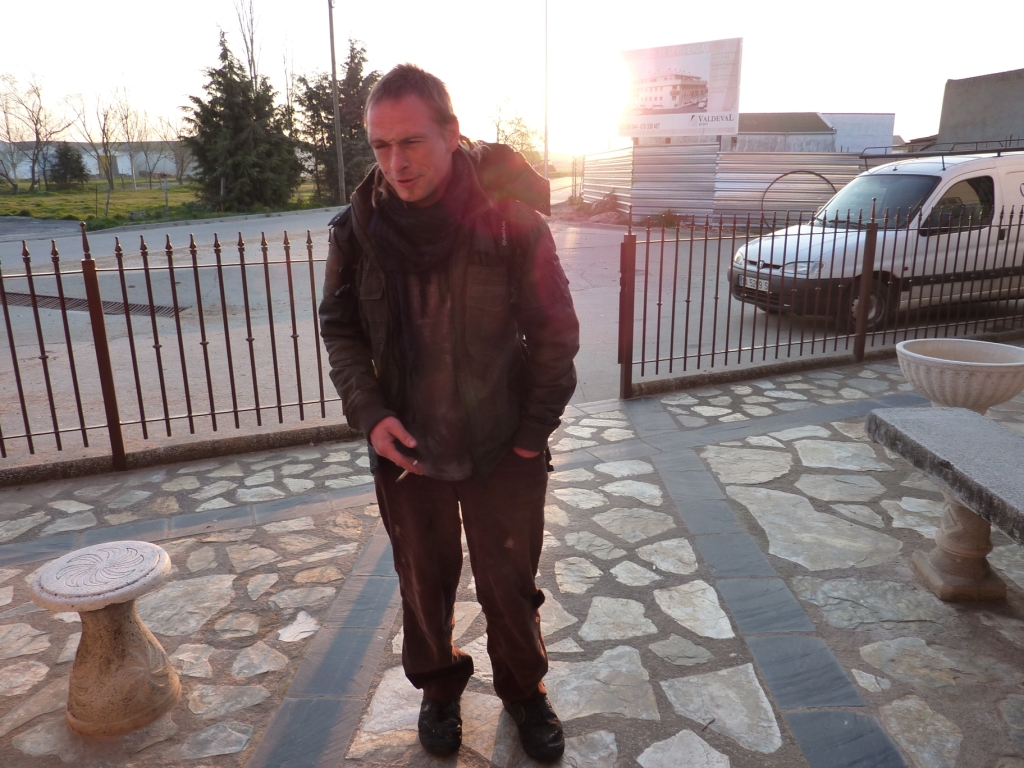Hospitality.
On the Caminos de Santiago there are many forms of hospitality, usually albergues or hostels run by volunteers, or by a local authority. The work of the hospitalero is to welcome pilgrims and assure safe and cared-for shelter.
The work of the Friends of the Camino is based on the ancient Benedictine rule of welcoming the stranger as if he/she were Christ himself. Today these lay people, not necessarily with any religious convictions, put into practice this act of charity. They welcome whoever turns up as a genuine pilgrim. All sorts of people turn up for the nights in the albergues, from all parts of the world and of all ages.
I really admire the Friends of the Camino whom I have met and am very grateful to them for all their help.
My night as Hospitalero.
I had the opportunity one night to be hospitalero in the small village of Calzada de Valdunciel.
My appointment in the post for the night arose by default because I had arrived early at this little village in the Province of Salamanca. The Via de La Plata in April (2010) was very quiet after a busy Easter spell. The woman who looks after the Albergue had asked me to book in anyone else who arrived.
The one person who did turn up was Miguel whom I had already met. Miguel was homeless and had walked from Cadiz to Santiago and back through Portugal to Faro and then was heading North again in the spring. He had told me of his troubles in some albergues where they didn’t want him to stay because he smelled of drink. He did have the Credencial, the official document everyone needs to stay in an albergue. He seemed pleased to see me.
I asked him if he minded staying in the hostel for a while while I went for a walk, just in case anyone else turned up. My absence was much longer than I had imagined it would be because the bells rung for Mass soon after I left. I decided to go to it.
When I returned towards the albergue a car stopped and the woman, the real hospitalera, called me over. She said she had been passing the albergue on her way back from Zamora and had called in to see if I needed anything. “But”, she said, “I have met him and I am not too sure about him. ” There was a tinge of disapproval that I should have let Miguel install himself. “But the other one, “she said, “He is not to stay. I have told him to get on a bus to Zamora. He has no credencials and he definitely must not stay here.”
Miguel was alone in the albergue when I returned and told me that the woman had passed just as the other person a young Czech boy had arrived. There had been an argument and the boy had gone off. “Just as well,”said Miguel, “He’s on drugs.” It was siesta time so we both lay down to snooze. I was awakened by a loud knock on the door. I got up and opened it to a dishevelled young man who said in perfectly good English that he wished to stay the night. It was obviously “the other one.” He was smoking, smiling and insistent “Please,” he said, “Can I just come in and have a cup of tea?”
So Zdenik came in and we boiled some water. Zdenik produced some tea bags – Green tea. He was alone and had walked from Salamanca, but his story was confused. He was very polite most of the time but would suddenly say angrily such things as, “She was driving a car. DESTROYING THE PLANET!”
After a very long teatime we walked out to the roman milestones collected beside the albergue. It was becoming cold. April can be very cold at night in Salamanca.
Zdenìk kept pleading to be allowed to stay and Miguel said he had no objections: it was up to me. I explained that it wasn’t really up to me and that the person in charge had said he was not to stay. The hospitalera was no longer in the village and I wondered whom I should consult. It was by now dark and the temperature was well bellow zero. Zdenik and Miguel had decided to head for the bar when I said, “Look, I’m going to bed, but before I do I’ll phone the Guardia Civil and explain the problem.” I knew that the Guardia Civil do not leave people to freeze at night. Throughout this Camino both the Guardia Civil and the local police usually knew where to stay at night for free. “Fine,” said Zdenik, “See you later then.”
Zdenìk was indeed charming although it did seem he was on a happy substance and he did have his outbursts. All I wanted to do was sleep. I phoned the Guardia who turned up very promptly and asked me simply, “Do you mind him staying?” “Of course not,” I said. “My problem is the hospitalera said he must not stay.” They paused and said they had to check with the mayor. I got into my sleeping bag and had just fallen asleep when they returned. “We’ve spoken to the Mayor who says that on no account can this boy stay.” “However, if you are willing to have him here, that will be fine.” This is the sort of thing I really like about Spain, flexibility. They had been to the bar and chatted to Miguel and Zdenìk and felt there would be no problem. They left and at last I got off to sleep.
It must have been about midnight when my two companions returned, Zdenìk dropping off instantly asleep in his clothes next to me and Miguel in a sofa in the lounge. “At last,” I sighed, “some peace.”
Perhaps an hour later, I was awakened again: a car had screeched to a halt outside. I heard footsteps approaching, quickly and heavily. The front door opened and there was a clatter. The door banged shut, footsteps running and a car roaring off with tyres spinning. Calzada de Valdunciel is a village in which nothing ever happens, according to the Guardia Civil.
[mapsmarker marker=”16″]
Neither of my room-mates stirred but I, somewhat alarmed, got up noting the cold. Inside the front door was a plate on the floor and on the plate a lettuce sandwich, with a serviette neatly folded beside it. Exhausted, I just left it there and snuggled once more into my sleeping bag.
The following morning I found Miguel awake. I told him about the car and pointed to the sandwich, still on the floor. He looked very puzzled. Zdenìk slept on. Then Miguel said, “Zdenìk did have an argument in the bar.” It turned out that he had wanted food and was offered the normal Spanish fare, jamon, chorizo etc.. He had reacted angrily saying he did not eat dead animals, thumping the table. He had stood up and cursed the bar for murdering fellow mammals. He had left without paying for his drinks. Apart from that Miguel had no idea why we now had a lettuce sandwich! It was clearly a creative symbolic act of revenge by the bar staff!!
I do love Spain. What a fantastic reply to Zdenìk’s rant.
I was delighted to have met Zdenìk who did get on a bus to Zamora and Miguel who stayed around a few days more with me on this Camino.
The thing about welcoming people you don’t know and wouldn’t normally select into your home is that you open yourself to life itself in whatever colour, hue, taste and key it brings.
St Benedict knew this.

